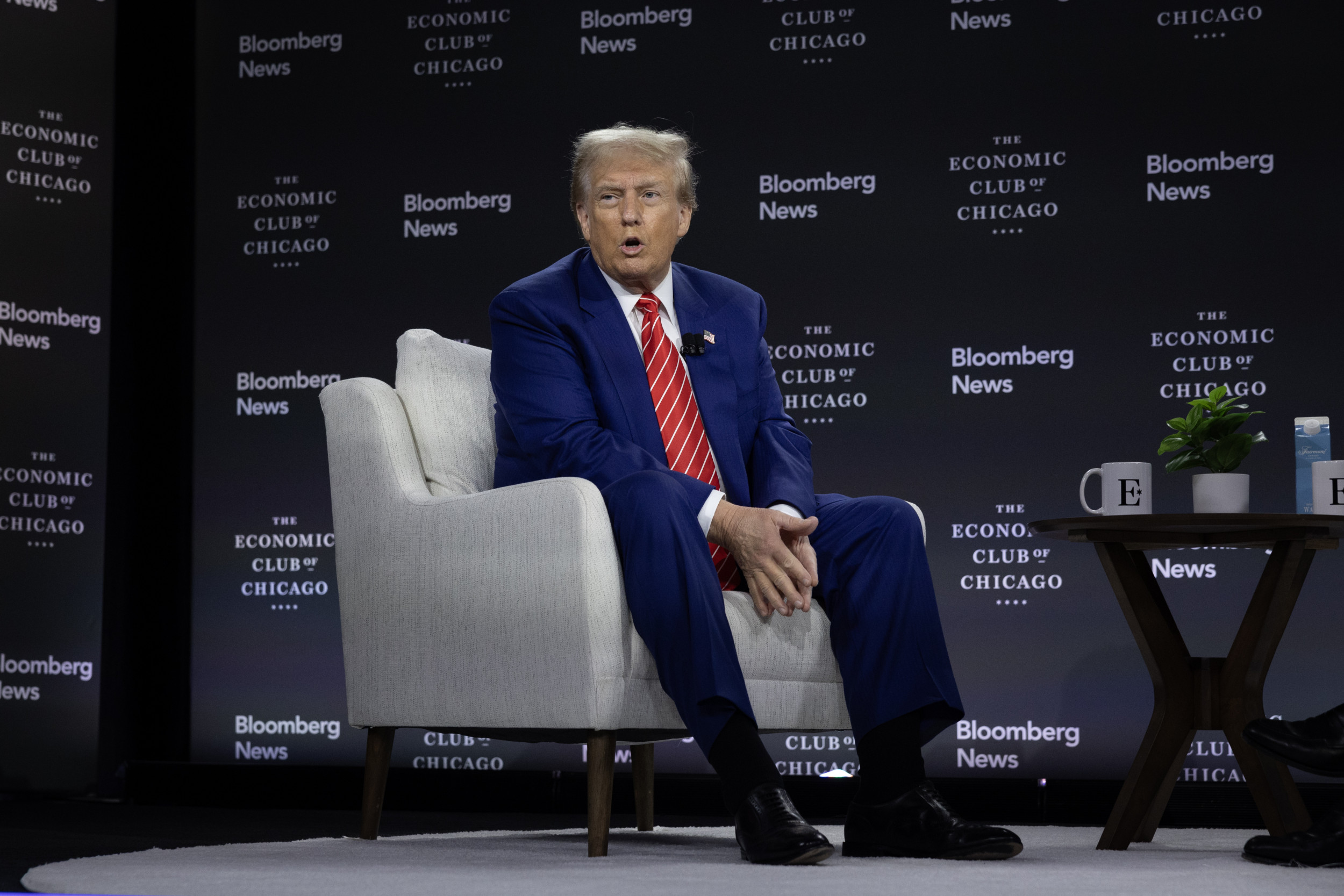In an interview with Bloomberg News, former President Donald Trump said he recently contacted Google CEO Sundar Pichai to complain about search results for his name, saying the tech company was suppressing positive stories about him.
Speaking at an event hosted by the Economic Club of Chicago on October 15, Trump told John Micklethwait, Bloomberg News’ editor-in-chief, that he had called “the head of Google the other day” to express his frustration with the search results.
“I’m getting a lot of good stories lately, but you don’t find them in Google,” Trump said he told Pichai. “I think it’s a whole rigged deal. I think Google’s rigged just like our government is rigged.”
“They only have bad stories. In other words, if I have 20 good stories and 20 bad stories, and everyone’s entitled to that, you’ll only see the 20 bad stories,” he told Micklethwait.
The former president’s comments shed light on his ongoing contentious relationship with major tech companies and his perception of how they handle information related to him. Trump has long accused tech giants of bias against him and conservative viewpoints, a claim that has resonated with his base but has been repeatedly denied by the companies.
Scott Olson/Getty Images
In August, Trump said Google would “pay a big price” after allegations surfaced that the tech giant allowed the Harris-Walz campaign to use altered headlines from various publications in paid Google ads. In 2017, before he was banned from Twitter (now X), Trump suggested there was “collusion” between Facebook and mainstream media outlets, tweeting, “Facebook was always anti-Trump.”
Trump’s criticism of Google extended beyond personal grievances. When Micklethwait asked about the possibility of breaking up Alphabet, Google’s parent company, Trump said: “Google’s got a lot of power. They’re very bad to me—very, very bad to me.” However, he stopped short of explicitly calling for the company to be broken up, instead saying, “I’d do something.”
Newsweek contacted Google and Trump for comment via email.
The former president’s comments come as large tech companies face increased scrutiny from both sides of the political aisle. The Department of Justice and several state attorneys general have ongoing antitrust lawsuits against Google, focusing on its dominance in the search and digital advertising markets.
Despite his criticisms, Trump acknowledged Google’s success, saying: “I give them a lot of credit. They’ve become such a power. It’s such a power. You got to give them credit for that.” He also expressed concern about maintaining American technological dominance, particularly in relation to China.
“Right now, China is afraid of Google,” he added.
Trump’s stance on another tech platform, TikTok, appears to have softened since his time in office. When questioned about his current position on the Chinese-owned app, which he had previously threatened to ban, Trump seemed more ambivalent.
He said, regarding action against TikTok, that he initially “had it all done” but ultimately left the decision to Congress. Trump acknowledged the “real First Amendment problems” associated with banning the app, suggesting a more nuanced view of the complexities involved in regulating foreign-owned tech platforms.
The conversation then turned to SpaceX CEO Elon Musk, who Trump hinted could have a role in his plans for the tech sector should he win the presidency. When pressed about rumors that he might task Musk with overseeing deregulation efforts in the tech sector, Trump said, “Not deregulation, cutting.” He added, “Cutting, which would include deregulation.”

